The UK Carrier Strike Group (CSG25), led by HMS Prince of Wales, has arrived in Singapore after transiting the South China Sea, reinforcing Britain’s Indo-Pacific presence and signalling its opposition to excessive maritime claims.
According to an update from the Carrier Strike Group, “Having transited the South China Sea, it’s great for us to be back in Singapore.”
The stop comes at a politically charged moment. The South China Sea is one of the world’s most contested waterways, with Beijing claiming almost the entire area under its so-called “nine-dash line” despite rulings under international law rejecting those claims. China has built artificial islands, militarised outposts, and regularly challenges foreign naval operations in the region.
For Britain, the passage highlights its growing role in upholding freedom of navigation in waters increasingly treated by Beijing as its own. The UK insists that the South China Sea is international water, critical for global trade, with a third of world shipping passing through every year. By sailing a carrier strike group through the contested waters, Britain has joined allies in signalling that China’s expansive claims will not go uncontested.
The transit follows another flashpoint earlier this month, when HMS Richmond sailed through the Taiwan Strait alongside the U.S. destroyer USS Higgins. China’s Eastern Theater Command denounced the passage as “trouble-making and provocation,” claiming to have dispatched naval and air units to shadow the vessels.
London rejected that characterisation, stating: “Wherever the Royal Navy operates, it does so in full compliance with international law and norms, and exercises freedom of navigation rights in accordance with the United Nations Convention on the Law of the Sea.”
Washington echoed the point, stressing that “the ships transited through a corridor in the strait that is beyond the territorial sea of any coastal state. Navigational rights and freedoms in the Taiwan Strait should not be limited.”
China views the Taiwan Strait as internal waters and its wider South China Sea claims as sovereign territory. Western governments argue both are international waterways, essential to global commerce and security.
Freedom of Navigation Operations (FONOPs) challenge Beijing’s interpretation directly, and the Royal Navy’s decision to sail through both flashpoints in quick succession represents a deliberate show of allied resolve.


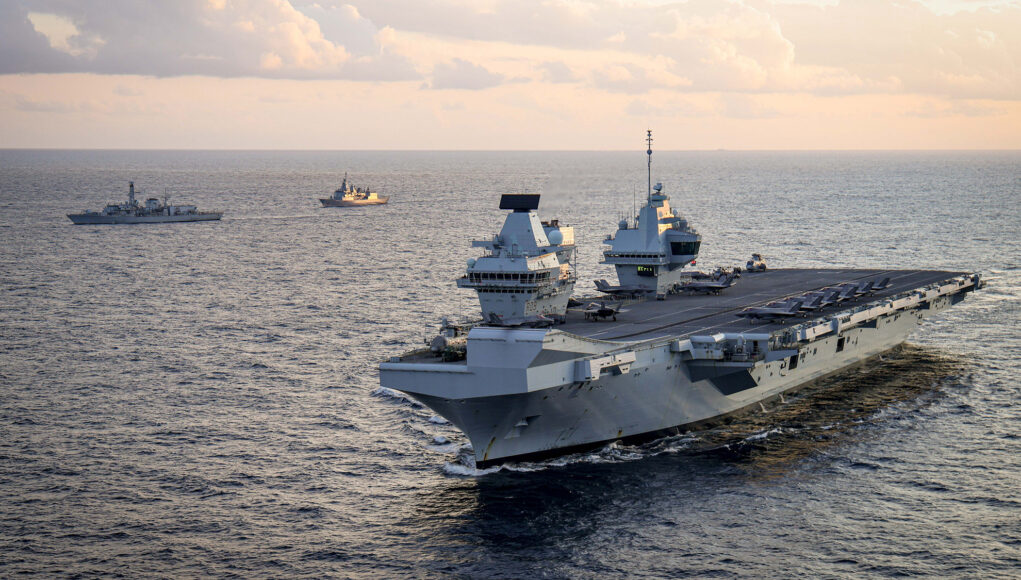

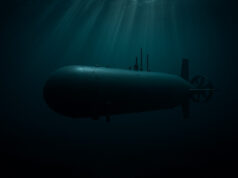



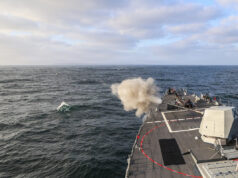
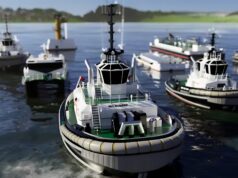

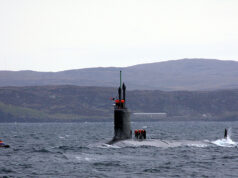
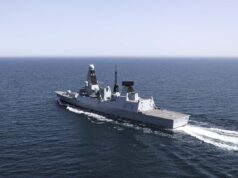

Beijing needs to read history books when it come to the Royal Navy and the United Kingdom.
UK government might need to do the same.
Good point, Halfwit!
Beijing has read them and taken all the lessons, make no mistake, Beijing is leading the preeminent maritime nation at present.
On what planet? 9 very loud, dangerous (to the crew) SSN’s in service. The USN has 70.
There is a danger in underestimating China and It’s rapid military build up. Long gone are the days when everything was just crap.
History shows us the folly of such dismissiveness.
I don’t think anyone is underestimating them. But they also have zero real world combat experience. And people forget, like really forget, just how capable the US Navy still is. Let alone allies in the region.
No Robert, I see this dissmisal of China’s military capability daily, It’s as if people don’t know just how much effort the Chinese have put in to Military capability these past 20 years and still are. It’s like they have no Idea at the enormity of the effort and huge strides the Chinese have made. It’s no longer Pitch Forks and Swords, It’s a massive Navy, Airforce and Army with modern Tech and next gen Platforms all backed up by the huge manpower pool. You are spot on about combat experience though but The US and Allies haven’t fought a major war at sea in many many decades, a few horrible actions but nothing on the scale of the potential engagements that could come. You say the magic words “Real World” like so many others yet we are all on that world, It’s the only one we have.
Dissmising China today is no different than 1940’s Japan.
That’s my serious quota used up for the day allready !
I shall revert to type now. Have a great Sunday mate.
I do my best to try and spread the word. The thing is China have actually encouraged this.. you will never come across Chinese troll farm political warfare types extolling the power of the PLAN to the world.. they actively hide how many ships they commission and when. You get the odd local headlines for the big obvious national pride stuff like the new carrier.. but the 5-7 jobbing major surface combatants they tell no one when they are commissioned. The PLAN has an active policy of “hide your strength “ this should worry anyone.. as I once told supportive the PLAN are the only superpower blue water navy that has somehow gaslit most of the world into thinking they are a green water navy.. they have done this purposely as they don’t do anything without the CCP having a purpose behind it.
And as for maritime power it’s even more bizarre as the west seems in total denial.. head in a bucket.. almost everying we buy has come via a Chinese port on a Chinese shipping container via a ship China built.
Chris sorry mate you are miss understanding what a maritime power is.. what you are looking at is one facet of naval power and your way out on the balance.
So a maritime power encapsulates all of a nations sea power
1) its ports and ability to transport goods and take advantage of opportunities.. 80-90% of the world’s good pass through mainland china’s ports and it owns and controls a further 100 ports across the globe including ports in Europe and North America.. in regards to the facet of ports and goods china is the leader.
2) merchant marine..dead weight tonnage China has far the largest merchant marine at around 350,000,000 tonnes.. that’s owned, flagged and controlled.. its got a load more owned and controlled but under flags of convenience.. that’s 30 times more than the US. On that metric it’s the leader
3) maritime industrial capacity. China as over 50% of the worlds ship build capacity by tonnage.. about 260% more than the US.. in that metric China is the leader. As an aside it also builds and controls over 90% of the world’s shipping containers.
4) maritime awareness. China is a nation profoundly aware of maritime opportunities.. Xia was described by the US naval college as the pre-eminent maritime leader now and one of the greatest of the modern age.. China wins on that one as every other world leader is sea blind.
So the only domain of maritime power the US has a chance to compete with China on is naval power… and let’s be clear the US has it…
So finally we get to naval power.. you said the US has 70 SSNs vs chinas 9
Let’s unpack that one tiny element of naval power.. the US does not have 70 SSNs its got about 53 and that will drop to 43 in about 3 years.. its also got a crisis of maintenance with a 33% backlog of SSNs without dive certificates. This gives the US a fleet of around 30-35 boats that are operational at any one time it could probably deploy 60-65% of those operational boats so let’s say a world loll wide availability of 20 moving forward, Not your 70 . Now future wise the US is only able to produce 1 SSN every 18 months and because of the LA crisis ( all 24 LA boats will be gone probably by around 2040) the USN is not getting above 50 SSNs anytime in the foreseeable.
Now let’s just look at the PLAN SSNs.. historically the PLAN has been the most unenthusiastic SSN operator on the planet. Now the HAN class ) Type91 is without a shadow of a doubt the worst SSN ever built and the first two in the class were death traps as well as being, the 3-5 type 91s probably just about matched a victor 1 ( bit worse). These finished buildings in 1990.. they then laid down 2 type 93.. these were just below an early victor 3 commissioned in 2006 and 2007. Now after that the PLAN build its SSBNs but was profoundly unhappy with its SSNs and the 2 T93s were build with Chinese tec.. just after this time it was starting to build competent electric boats ( from Russian kilo tec) So the next SSN was not commissioned until 2015 the Type93A.but it had the tec from Russia… it then commissioned one a year for 4 years and stopped. Now essentially each of these SSNs were a testbed to new tec with the first probability a bit better than a early victor 3 and the last a bit better than a late victor 3.. but it allowed China to perfect its rafting, tiles and pump jet propulsion. But it still had one massive flaw it could not get the energy density needed in its reactors so all the T93s have dual reactors for twice the reactor noise.. so getting the overall noise down to a late victor 3 with its one reactor was good
It then paused for a bit to look at its learning and how improved CSS on its CNC lathes would improve its SSNs. It also started building a SSN mega factory.
So yea the 9 SSNs it build up until around 2015 we’re not very good..and every one was essentially a test bed…BUT
Suddenly 2 years ago a New SSN suddenly started popping out of the SSN mega factory at a rate that can only mean China has started serial production of SSNs for the first time. The T93B now this is a perfected set of tec, it’s considered probably as quite as an improved LA and has 18-24 vertical launch tubs for 2000km range cruise missiles.. PLAN is in the middle of commissioning the first 4 and up to 8 have been launched.. ( up to 8 in about 2.5 years ) it’s believed the run of this SSN will be 12.. because it’s got one big flaw it’s still a dual reactor design.. but very helpfully Russia handed over a maritime reactor with the power density to run an SSN to China and so now China is building a new generation SSN the T95.. essentially everything is in place for this SSN now in production to be the peer of a present generation western SSN…
The most worrying issue is the new nuclear submarine superfactory.. added to china’s original 4 SSN/SSBN slips are 12 new SSN slips, 4 new SSBN slips for 20 slips, each supported by a set of large components assembled buildings, small components assembled buildings , a 2 chamber reactor fuelling facility and a painting and tiling slip.. all connected by a rail transport system.. to make it worse they are building another set of SSN slips ( probably another 12 slips building ).. essentially it’s estimated that China can now build 6 western equivalent SSNs a year and it will probably be able to hit 8 a year.. that about 3-4 times the build capacity of the US, UK and France combined..
So it’s likely within a decade China will be close to parity with US SSN fleet but yes now the USN has the advantage in SSNs we also need to look at the other elements..
Electric and AIP boats.. the US has none of these.. China has around 60 of these.. the USN has none. But China launched about 1-2 of these a year to complement its SSN fleets. Also China it seems is developing an electric boat with an auxiliary nuclear reactor.. although it will still have the capability of an electric boat.. size, speed, power for sensors it will essentially like an SSN be independent of the surface and independent for water and O2/CO2 management.
Major surface combatants the US has 85 major surface combatants ( 74 ABs and 9 ticos+ 2 white elephants) and China has about 100 ( 50 AAW destroyers and 50 ASW frigates).. the US major surface combatants are on average bigger but a lot older, but 8 of the PLAN destroyers are 13,000 monsters.
The big issue is trajectory. The USN is only build about 1 major surface combatants a year.. this is not going to keep up with its decommissioning as all 9 ticos will be gone in 4 years but only 3-4 new ABs commissioned at best.. so the fleet drops to 80 in 2030.. at which point the oldest Burke will be 39 years old.. and the problem is that in the 1990s the US was commissioning up to 6 burkes a year so in 2030 30 of then will be over 30 years old.. essentially over the next decade the US will need to build 3 ships a year just to maintain 80.. if it keeps up its 1 a year it will drop to close to 60…
The PLAN on the other hand is able to build around 1 13,000 ton destroyer, 4 7000 AAW destroyers and 2 5000 ton ASW frigates.. that’s about 7 major surface combatants a year and the fleet is very young.. as an example only 8 of the destroyers are over 20 years old and 37 are less than 10 years old.. this mains PLAN major surface combatants will just keep on growing.
The PLAN also has 50 1500 ton ASW corvettes for use in the China seas.
So major surface combatant wise.. it’s now close but different, but Chinese major surface combatant numbers are growing but the USNs are getting less and less.
Amphibious vessels
Global China has 8 25,000 ton amphibious vessels 4 40,000 ton assault ships + 1 50,000 ton helicopter carrier fitting out. The USN has 9 LHAs and LHDs at 40-45,000 tons, 13 25,000 ton amphibious transport docks. So the USN has the bigger global reach amphibious fleet.
Carriers: the US big advantage 11 large carriers vs chinas 3 ( only 2 active) the US carriers are the USNs big advantage and why the PLAN is not up to fighting the USN toe toe outside of the Western pacific.
So yes China is the most significant maritime power, but it’s not the most Powerful global naval power.. it is the most significant naval power in the western pacific area and the second most powerful naval power.. that at present trajectories will become the most powerful naval power within a decade.. ( because Maritime power always in the end translates to naval power and lack of maritime power always leads to a decline in naval power)…
If I was you a good read is the 2024 book from the US naval war college “ Chinese amphibious warfare: prospects for a cross strait invasion.. 550 pages examining the naval balance between the US and China and how that would influence any invasion as well as how China would leverage its maritime power and a realistic assessment of what the USN could actually achieve in the first island chain without being destroyed ( not a lot if it took the PLAN head on on its side of the pacific).
The USN has 21 Los Angeles class boats defueled and inactivated. They aren’t recycled. If a shooting war starts, they can be reactivated in 90 days. This is a requirement of congress.
You wrote a big paragraph, but your knowledge of the USN submarine force is minimal.
Chris you are joking itakes about 3 years to refuel an SSN when it’s planned and ready to go. No one would be insane enough to try and refuel and recommission a defuelled and decommission SSN.. it’s an insane engineering task. The LAs go into the reserve as part of the process they are then stricken and finally disposed of onto the recycling programme.. the reason they’re are so many decommissioned hulls loitering about is because decommissioned SSNs are dangerous and hard to dispose of…
I have never ever in all my research of any of the major navies ever seen any plan to refuel and recommission a decommissioned SSN if you have a reference or any evidence I would be intrigued.
Jonathan, I think you mean Xi not Xia.
I do, that’s typing on a little phone for you😂
Jonathan, lots and lots of details. On the larger stage China has always surprised and surpassed. China was kicked out of the International Space but in 10 years they had own. Who will return to the moon next: US or China?? The NASA experts are very smart but don’t have Nazi rocket scientists any more. At the turn of the century, hardly anyone had a telephone, now Chinese has the most smart phones. No one expected China to produce cars, 30 years ago, now BYD could put all auto manufacturers out of business. It would be interesting if PLA navy and US Navy had battle just for fun, just to test each other.
And, if reports are correct, command of those subs goes to the worst graduates out of their naval colleges. It’s seen as the least prestigious posting
I’ve heard China is churning out ships quite quickly however I’ve also heard they are not built to military standards and many of them are basically built to commercial standards rather than military now naval is not my specialty so I would bow to anyone who can confirm or deny what I’ve said but I’m not going to say that China isn’t a powerful naval force but it’s not in anyway comparable to the USN
I suspect the idea that China and somehow building “pretend” warships comes from a bit of wishful thinking in some areas.
Obviously its difficult as the PLAN don’t even tell people when they commission warships let alone the standards.
But I would go with the “ they are building decent warship brigade.. not the it’s all smoke and mirrors to hide weakness brigade.
Mainly because the people who really think about this take the PLAN seriously.
So a good read is the 2020 US office of naval intelligence, technical analysis centre. In their expert view “ Chinese navel ship design and material quality is in many case comparable to USN ships and China is quickly closing the gap in any areas of deficiency ( that was the assessment 5 years and about 40-50 ships ago). They also estimated that by 2030 number of major surface combatants in commission with the PLAN will be around 200.. on present trajectories the USN will have about 90.
Tim, smart phones made in China are among the best in the world. Apple iPhone is mostly made in China, costing less than $35 and sells for 1200 in US. ( invest in Apple). BYD are just as good as Tesla for less than half. So, if cell phones and electric cars are just as good as western ones, then China warships should be similar quality. BTW, China will have the only operational Space Station as western ISS, 2030, will have a fiery return to earth.
Smart phones are not designed by the Chinese they are made there under supervision by western people using western machines and BYD are not as good as Tesla and neither are they half the price the Tesla model 3 is 39k the BYD seal is 47k and building a electric car is not the same as building a war ship
Quite so China is talking complete BS. The RN had their China squadron in the interwar period who operated between Hong Kong, Shanghai ( and up the Yangtze) and Wei Hie Wei without let or hindrance. In fact they were more or less actually defending China against Japanese incursions. Ingratitude is a 21st century concept and complete load of junk. It would be interesting to take a sample day or two of shipping in the SCS for every year from 1797 to 1997 and see how that works out with the % Chinese. Things used to be generally worked out on the basis of mutual respect and for commerce.
It often amazes me that the three nations who benefit the most from freedom of navigation, China, Russia and Iran are the three that are so keen to f**k it up.
Racists autocracy’s with delusions of grandeur far beyond the weak ability of their state to realise.
Fortunately most people in the world have realised joining the global Maritime order is the way to bring peace and prosperity to their people.
Unfortunately when it comes to china, weak ability is simply not the case, there is only one nation more powerful than china and the gap is closer than many think or are willing to admit…in some cases china is utterly dominant..specifically in most of the core pillars of a maritime power.
US Navy….Hold my beer.
Yes globally.. not in the china seas.. and quite frankly unless the US gets its act together it’s going to find it’s global dominance is gone in a decade.. china has the bigger maritime capabilities and it’s converting that into naval capabilities at a staggering rate.. its now able to out build the US in major surface combatants by about 7 to 1 ( 1 13,000 ton destroyer, 3-4 75000 ton destroyers and 2-3 5000 ton ASS frigates for every Major surface combatant the USN commissions. It’s also now able to outbuild the entire west in nuclear submarines production by about 3-4 times.. it built that capability in 7 year. It’s got 20 nuclear boat slips backed by essentially a mega factory and its looks like it’s going to take that to possibly 30 slips. its latest SSN design is almost definitely going to be at present western standard and its estimated nuclear sub output will be about 6-8 a year…and that is separate from its other conventional submarine shipyard..which it seems has built a conventional sub with an auxiliary nuclear reactor..that essentially turns the electric sub into a strategic platform, yes the thing sank in the shipyard.. but they built a complex novel designed before anyone else..they have also built about 6 different large autonomous submarine platforms some of which are actually large enough to have torpedo tubes..they actually have an autonomous warship..build and sailing, with its own autonomous aircraft..not just an aspiration or a we will do it speech..an actual hull that was launched and has been undergoing trials since 2019.. when an RN large autonomous vessel was still only a wet dream that Wa not talked about.
The simple reality is the USN is in the shit, the surface combanants fleet is geriatric and over the next decade or so it’s going to be decommissioning about 40 major surface combatants and if it cannot get beyond its present 1 per year build rate it will drop to a low of about 60 major surface combatants..going into the 2040s ( all its Ticos will be gone by 29 and by 3035 20 of its ABs will be fourty or older).. it’s suffering an LA crisis and will drop to around 43 SSNs in a few years…with about 30-35% of them without dive certification. in the mean time majory of the PLAN surface fleet is a decade or less old and only 12 of its 150 major combatants are over 20 years old and it can and does kick out 5-7 new combatants a year.. with it now putting SSNs into serial production as well.
If the west keeps on with the PLAN is shite and china is in trouble, it’s going to be utterly outgunned in a decade and find it itself at the wrong of the new maritime superpowers navy… as it is nobody really knows who would win a pacific naval war even with the present balance.the PLAN or USN.. but everyone knows who could build a whole new navy in a decade and who could not.
Hi folks hope all is well
Interesting as I often think of what would happen if the Chinese got a bit tasty and fired upon our carrier or any of the escorts.or both. I know the Chinese haven’t got the experience in conflict and question the level of professionalism. Nonetheless, there must be plans in place for such an event.
Cheers
George
We’d be screwed. If it’s a single Chinese escort or two then it would be fine but China would be smart enough to know that if they are starting a fight like that they need to win it. And the Chinese are professional enough not to have lone captains deciding to suddenly start shooting.
The Ships have got good defensive measures, the Type 45 possibly being the best air defence ship in the world, with its Aster/SAMPSON combination but they are all significantly lacking in the number of missiles. HMS Dauntless only has 48 making the Type 45 class the most underarmed modern destroyer compared to tonnage in the world. HMS Richmond has 32 CAMM which is a good missile but a short range one, HMNS Roald Amundsen only has 8 VLS for 32 ESSM, another short range defence, and HMS Ville De Quebec also only has 16 VLS but from what I can gather doesn’t quad pack so only has 16 ESSM. The modern standard for frigates is 32 VLS. That means that HMS Dauntless is the only ship in the group that can target ballistic missiles or high-tech missiles and that the others all are carry below average numbers of short range defensive missiles. The PoW doesn’t carry any missiles which is odd for a carrier of its size.
That means that sadly in the event of a conflict an equal sized Chinese fleet will probably carry more missiles than the number of defensive missile CSG25 has, and so would win by default, and that is assuming that every single defensive missile hits which is rarely the case in a large at all from what simulation show.
HMS Richmond is the only British ship in the task force to carry any offensive missiles. HMNS Roald Amundsen carries 8 NSM as well, HMCS Ville De Quebec has 8 harpoons. The F-35 onboard have only got free fall bombs to commit offensive operations with, lacking any sort of ground attack missile or even a glide bomb. So the ability for the task force to hit back is severely limited. What should have been the trump card, the Astute sub, isn’t actually with the task group anymore having returned back to UK where no attack submarines are actually in the water at the moment.
All of that however is only what would happen to the task force itself. There would obviously be severe repercussions politically and internationally for such an act to occur that would be far greater reaching than just what happens to CSG25. Depending where it happens it might be in a place that would trigger article 5 (has to be above the tropic of cancer)
Above the Tropic of Cancer and in Atlantic waters essentially, the western boarder of NATO is the coast of North America..what happens in the pacific stays in the Pacific according to the NATO alliance.
The simple fact is china would bury the RN in a conflict in the pacific or eastern Indian occean, if it came to a conflict closer to home the RN would punish the PLAN hard, but it would still loss in the end, the only place the RN could win is essentially under UK aircover, a navy with 13 major surface combatants does win against a navy with 50 destroyers and 50 frigates and 50 corvettes. no carrier battle group in one of the china seas that china decided was dead would survive, even the US no longer plan to push in and dominate the china seas if they ever ended up in conflict with china they would seek to contain and at critical time attempt to deny china sea control..but they admit they could not take sea control of the china seas themselves.
China can not control anything with its current submarine force. As soon as Virginia’s start sterilizing the ocean, china will be retreating into port at flank speed.
Chris at best the US could put a handful of SSNs in the china seas.. they are shallow confined waters, sown with sensors and the home waters of 60 Chinese Electric boats as well as a surface navy with 130ish ships with towed arrays and variable depth sonars as well as about 100 ASS aircraft.. the USN would never be so brazen to put the SSNs in that cauldron.. they would have then outside of the first island ring to exert sea control between the first and second island ring.
Everyone is pretty much there with the fact a modern navy with 150 surface combatants , 60:electric and AIP submarines and 100 + ASW aircraft.. sub sea sensor nets as well as autonomous ASW assets can control its own Regional seas… the USN essentially is.
This string of posts about the RN versus the PLAN is all very silly. We would never engage in 1:1 conflict at sea or in any other domain with China.
I would hope not, but the question was asked..what would happen to a RN carrier battle group in the china seas if china decided it was at war with the UK.. quick answer to that question is we would not get it back…unless it had plenty of warning and a chance to run to friendly air cover ( Japan or Korea or get to the second island chain).
Jonathan. You really do underestimate our capability, tactics, leadership, and combat experience. Its not top trumps, or a game of battleships. Navy’s don’t have a face off and sit 50 miles opposite each other lobbing missiles until one wins.
Robert, naval conflict is and always has had a very great element of numbers.. as an example if you take the last 30 major naval conflicts the winning side 27 times out of those 30 had numerical superiority…it’s not a game of top trumps but Simply put edge in training or doctrine will and does only get you so far.. could an RN task group of equal numbers beat a PLAN task group equidistant from their logistic hubs.. yes almost definitely, could the the same RN task group win against 10 PLAN surface action groups.. not a chance and anyone who played those odds and did not run for home and air cover would be an irresponsible fool.. as for any engagement in the china seas the PLAN will win….if it all kicks of most agree that the PLAN would gain sea control around the china seas and Taiwan and there is a high probability of detection and destruction of any naval task group in those areas china considered enemy combatants. The USN is not any longer seriously planning on sitting in the china seas and claiming sea control because it knows what would happen..
Simply put in submarine and major surface combatant numbers the PLAN is the largest navy on the planet.. it’s got about 10 times the surface combatant and submarines of the RN.. and although their doctrine has not been tested, they practice a lot, their ships captains get a lot of sea time ( more than a western navy sea captain..as the PLAN focus on creating ships captains not necessarily rounded flag officers so they give them more ships and command positions) and maybe their is tec is behind the west ( and that is starting to be a questionable blanket statement ).. but their ships are almost invariably newer and many are significantly larger and have greater depth of magazines.. they also have a higher density of long range volume search radar and as for towed arrays they have around 130 surface combatants with towed arrays. They also actually do more deployments than the RN.. they simply like to keep them under wraps and the western media don’t tend to report it…
They also have a shite ton more ISTAR assets that the RN could ever dream of and they are piled high in the western pacific..the PLAN has access to I believe around 300 space based ISTAR platforms..before you even get to their air breathing ISTAR.
Finally their SSNs as we all know are at present utter rubbish, but their 4 new type 93bs are thought to be not far off an improved LA and their newer IAP subs are considered as good as anyone’s..
People really do focus on what PLA was 2 decades ago not what it is now as many navies in history have learnt a joke of a navy can transform into a viscous enemy in 2 decades… and the growth of the PLAN is being driven by the fact china is now the preeminent maritime power.. just as centuries ago the RN because the force it was because Britain became the premier maritime power and the USN followed suit when the U.S. took over..
So I don’t underestimate our capabilities but any single carrier battle group in the china seas would die to the PLAN if they decided it needed to go..even a U.S. one.. after all the US plans would be to have 5-6 carrier battle groups working together to try and break PLAN sea control around Taiwan… not send in one.
A very good read on the expert assessment of balance of power in and around the first island china can be found in the U.S. naval war colleges study 8 Chinese amphibious warfare, prospects for a cross strait invasion… its a very good book and 2024 so current.. essentially its focus is PLAN and PLAGF amphibious doctrine, but it also covers wider Chinese maritime power, control and essential that fact that the PLAN now has essentially full sea and air control of the seas around the first island chain and essentially sea and air control would be completely open up to the second island chain and that the USN is only really sure it can gain sea control beyond the second island chain.
The most likely scenario would be a Chinese aircraft or warship misinterpreting its instructions or rules of engagement and firing in error. (Similar to the Russian pilot who fired two air-to-air missiles at an RAF Rivet Joint over the Black Sea.)
Under those circumstances the CSG would swat the attacking missiles from the sky.
To be honest if a single PLAN or PLAAF aircraft fired at the RN carrier by “mistake” it would almost definitely not be a “mistake” but a planned action that was denied as a mistake.
One of the potential weaknesses of the Chinese forces is their level of political control. The CCP ( well Xi ) has a plan and everyone follows that plan, initiative, creative thinking or mistakes are not really tolerated.. and they practice quite a lot. Any pilots would have had a good solid lecture by their political office on the political ramifications and a major part of an PLA officer training is based around political warfare and political ramifications of actions as they are expected at all times to engage in political warfare when they can.. The Russians are poorly trained cowboys, the Chinese are well drilled and a bit brainwashed TBH.
Just hope we don’t give up Chagos Island like we seem to be doing. Carrier should be visiting Diego Garcia really when out that side of the world.
Might need to build a big port first.
I think a third improved QE super carrier is needed.
We’re upsetting Winnie the Pooh, again. Naughty Royal Navy !
You people at UKDJ have restored my faith in the “Tooth Fairy”, “Santa Clause”, the Green Manalishi” and all those other wonderful beings which inhabit our world beside us, keep up the good work. Should it all kick of in the South China Sea I bet none of you or your keyboard warrior’s will be there along with any British Carrier group.
There has been an oddly low media profile for the start of the Five Power Exercise Bersama Lima 2025, which includes a UK aircraft carrier for the first time in nearly 40 years! HMS Ark Royal took part in Ex Lima Bersatu way back in Sept 1987.